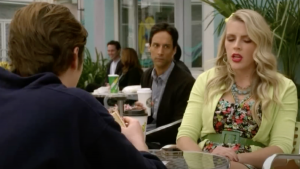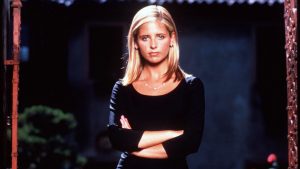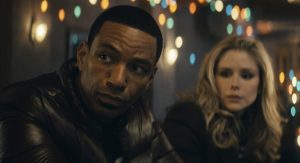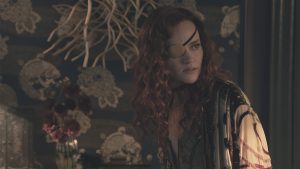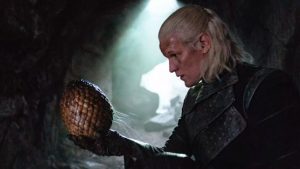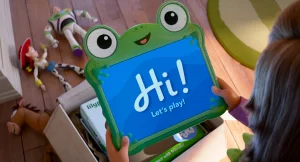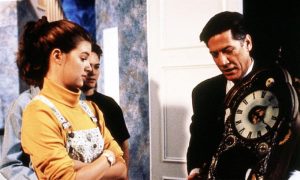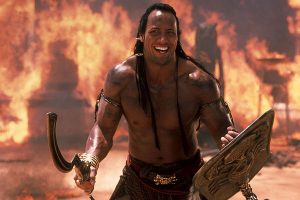
“It’s okay, baby,” Harley Quinn tells an agitated Joker at the end of the newest trailer for Joker: Folie à Deux. “Let’s give the people what they want.”
What people want, apparently, is Harley Quinn herself. First introduced in an episode of Batman: The Animated Series, Harley has grown to become one of the most popular characters in the DC Universe. Through most of her history, Harley has been the quintessential battered girlfriend, a woman who lost her own identity under that of her abusive, controlling boyfriend.
Harley Quinn began as Dr. Harleen Quinzel, a psychiatrist at Arkham Asylum tasked with studying the Joker. The more she learned about the Joker, the more enamored with him she became, to the point that she lost all sense of herself and became a henchman.
The trailer for Folie à Deux features a very different take on their dynamic. Instead, Harley (Lady Gaga) appears to be a fellow inmate in Arkham, not a doctor helping patients. And rather than follow the Joker’s lead, she’s egging on Arthur Fleck (Joaquin Phoenix). In what appears to be a foundational moment, Harley smashes a storefront window to steal a television broadcasting an interview with Arthur. In these scenes, it’s her desire and agency driving her actions, not those of the Joker.
On one hand, this revision fits with work that has been done recently to move Harley out of the Joker’s shadow and into her own. The romance between Harley and Poison Ivy, seen in both the comics and in the television series Harley Quinn demonstrates how being in a loving and supportive relationship allows her to be herself. Likewise, Margot Robbie’s take in both Birds of Prey: And the Fantabulous Emancipation of One Harley Quinn and The Suicide Squad is very much that of a woman moving away from an abusive relationship (one that got romanticized in Suicide Squad).
From this perspective, Folie à Deux‘s revision of the core dynamic allows Harley to retain some agency, even if she’s still paired with the Joker. That greater agency is hinted at with the song that Harley sings at the end of the trailer, “Get Happy.” In the filmed version of the song, from the 1950 musical Summer Stock, Judy Garland sings about judgment day in a dapper suit, bossing around the various male dancers moving around her. That scene could inspire the way that Harley and Arthur interact in the film.
On the other hand, the at best muddled and at worst toxic viewpoint of the first Joker raises some concern. Will director Todd Philips and his co-writer Scott Silver present Harley as just one more oppressor of poor, misunderstood Arthur Fleck?
The trailer doesn’t give us enough to go on either way. Hopefully, the role reversal will continue exploring Harley Quinn as an interesting, three-dimensional character, neither a simple victim or victimizer. But if Folie à Deux follows in the footsteps of the first Joker and wastes too much time copying Scorsese and pushing buttons to develop a coherent viewpoint, the audience could once again come to their own conclusions – conclusions based on toxic word views – and bring Harley back to where she started.
Joker: Folie à Deux debuts in theaters on October 4, 2024.
The post Joker 2 Trailer Reverses the Joker/Harley Dynamic appeared first on Den of Geek.
